But I suppose there might be good in things, even if we don't see it
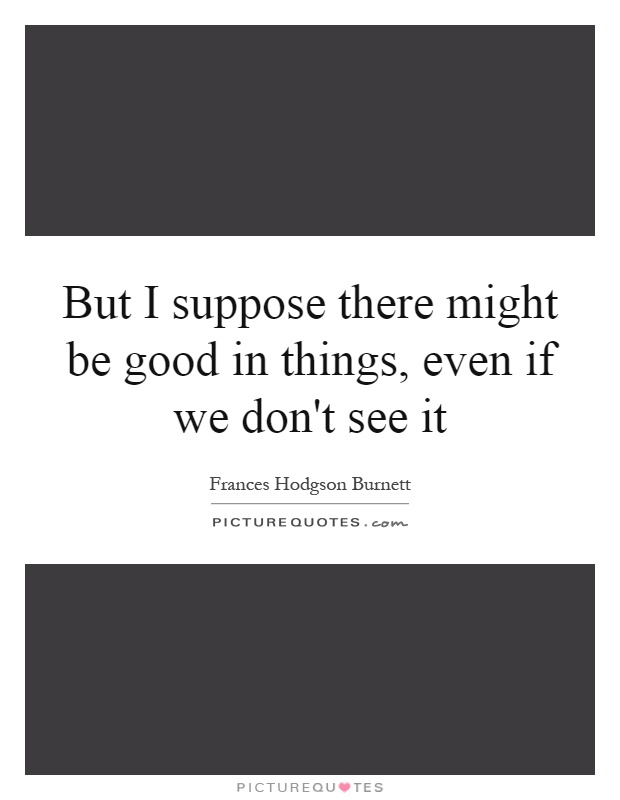
But I suppose there might be good in things, even if we don't see it
Frances Hodgson Burnett, the beloved author of classic children's novels such as "The Secret Garden" and "A Little Princess," often explored themes of hope, resilience, and the power of positive thinking in her works. One of the recurring motifs in her stories is the idea that there is always a silver lining, even in the darkest of circumstances. This sentiment is beautifully encapsulated in the quote, "But I suppose there might be good in things, even if we don't see it."In many of Burnett's novels, the protagonists face seemingly insurmountable challenges and setbacks. Whether it is Mary Lennox discovering a hidden garden that brings new life and joy to her world, or Sara Crewe maintaining her dignity and kindness in the face of adversity, Burnett's characters exemplify the idea that there is always a glimmer of hope, even in the most difficult situations.
This theme is particularly evident in "The Secret Garden," where the neglected and lonely Mary discovers a neglected garden on her uncle's estate. As she works to restore the garden to its former glory, she also begins to heal and grow as a person. The garden becomes a metaphor for the transformative power of nature and the human spirit, showing that even in the most desolate of places, beauty and growth can still flourish.
Similarly, in "A Little Princess," Sara Crewe's unwavering optimism and kindness in the face of poverty and mistreatment ultimately lead to her redemption and reward. Despite her hardships, Sara never loses faith in the goodness of others and the possibility of a better future. Her belief in the inherent goodness of people and the world around her ultimately leads to her salvation and happiness.
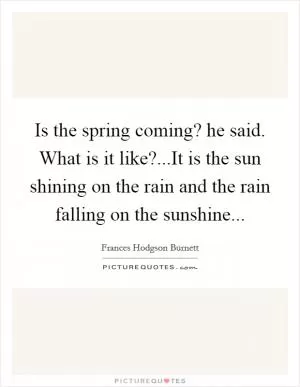
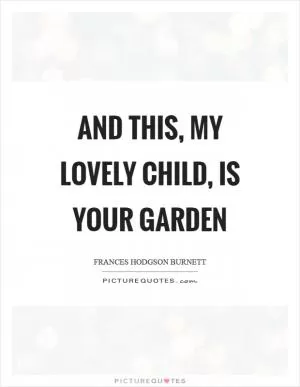




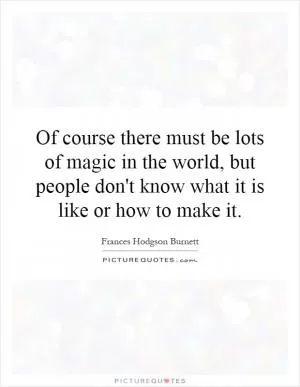

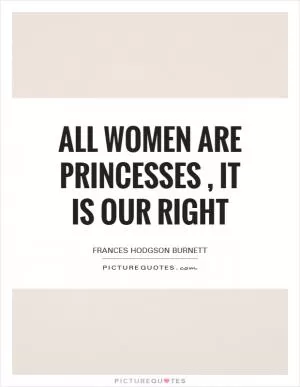



 Friendship Quotes
Friendship Quotes Love Quotes
Love Quotes Life Quotes
Life Quotes Funny Quotes
Funny Quotes Motivational Quotes
Motivational Quotes Inspirational Quotes
Inspirational Quotes